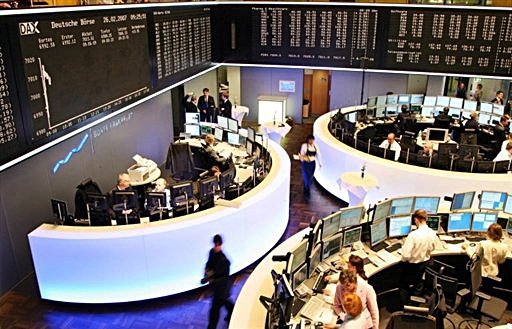Why 34 European stock markets aren’t enough for project plato

By Bloomberg
Why would a region with 34 stock markets need one more?
Because banks and fund managers say they need a way to circumvent new European Union restrictions on trading shares away from the gaze of public scrutiny. That’s why eight financial institutions have rallied behind Plato Partnership Ltd., a venue designed to exploit a loophole to the new rules: a get-out clause for the biggest trades.
The group will make a tool for buying and selling large orders of European shares a centerpiece of its proposed dark pool, Stephen McGoldrick, the project’s director, said during an interview. Six banks -- Barclays Plc, Citigroup Inc., Deutsche Bank AG, Goldman Sachs Group Inc., JPMorgan Chase & Co. and Morgan Stanley -- have signed up because they fear the rule changes will make it more expensive to trade some European stocks.
“The market can be improved and a new model could help do that,” said McGoldrick, who is also head of market structure at Deutsche Bank, one of the firms behind Plato.
Investors seeking to trade big blocks of shares often use the relative secrecy of dark pools to stop prices from moving against them. The institutions in Plato had discussed setting up a new equity market over several years before agreeing to a letter of intent in November. Deutsche Asset & Wealth Management and Norges Bank Investment Management have also joined the partnership.
Without the loophole for so-called “large-in-scale” orders, the rules coming into force at the beginning of 2017 may push trading from dark pools on to the stock exchanges, increasing trading costs.
‘Very Expensive’
The package of new regulations, called MiFID II, limits each dark pool to 4 percent of overall trading in an individual security. It also restricts total dark trading to 8 percent of volume per stock. Breaching the caps will lead to a trading suspension.
“The 4 and 8 percent caps are going to be impactful right across the spectrum,” said Duncan Higgins, managing director and head of electronic sales at Investment Technology Group Inc. “When you try to come into the lit market with a large order, it can be very, very expensive to trade.”
Other platforms are developing their own means of using the large-in-scale loophole. London Stock Exchange Group Plc will introduce a midday auction, where order sizes are hidden, to woo big trades. Turquoise, a trading venue majority owned by the LSE, launched its own block-trading service in October.
Burgundy, Turquoise
Bank consortiums have set up European markets before. A group of Scandinavian banks established Burgundy AB only to sell it on to Oslo Bors VPS Holding ASA in 2012. Burgundy has handled less than 0.01 percent of European equity volume so far this year. A group of investment banks founded Turquoise before selling a majority stake to LSE in 2009.
Plato has a second feature to draw firms to it. It will be set up as a not-for-profit market, using its earnings to finance academic research into improving market structure.
European markets need better quality academic research, McGoldrick said. Data from the region’s developed markets has attracted criticism for being too expensive and of too low quality for sound analysis.
“We want the intellectual rigor and independence that academia provides,” McGoldrick said.
The decision to make Plato a dark pool is striking given the attacks on their reputation over the last year. U.S. regulators and law enforcers have targeted private venues run by Barclays and UBS Group AG for allegedly misleading customers.
“They’re not winning me over,” said Michael Woischneck, who helps manage about $7.3 billion at Lampe Asset Management in Dusseldorf. “Maybe they get me in two or three years’ time, but right now I’m very skeptical. The traditional exchanges are still liquid enough for me.”
Here we are to serve you with news right now. It does not cost much, but worth your attention.
Choose to support open, independent, quality journalism and subscribe on a monthly basis.
By subscribing to our online newspaper, you can have full digital access to all news, analysis, and much more.
You can also follow AzerNEWS on Twitter @AzerNewsAz or Facebook @AzerNewsNewspaper
Thank you!
